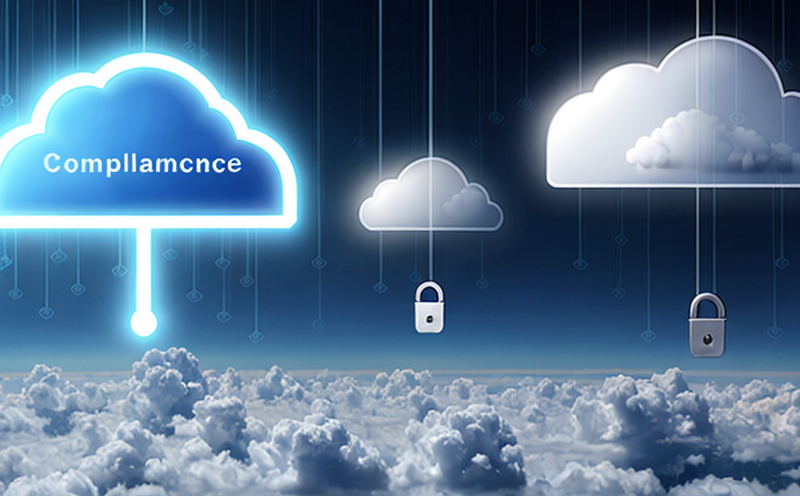ISO 27701 Privacy Information Management Testing in Cloud Environments
The ISO/IEC 27701 standard is an extension of the popular ISO/IEC 27001:2013 (now known as ISO/IEC 27001:2023) which establishes best practices for information security management. ISO/IEC 27701 introduces specific requirements to manage privacy data in a manner that is compliant with the General Data Protection Regulation (GDPR), the California Consumer Privacy Act (CCPA), and other global privacy frameworks.
Cloud environments present unique challenges when it comes to protecting personal information. The nature of cloud services, which can involve multiple stakeholders across different geographical locations, makes adherence to strict privacy standards critical for maintaining trust between organizations and their customers. This service focuses on testing the implementation of ISO/IEC 27701 in cloud-based systems to ensure they meet stringent privacy requirements.
Our team uses a combination of manual and automated testing methods tailored specifically to identify potential vulnerabilities or gaps in your organization's privacy information management system (PIMS). These tests include reviews of policies, procedures, training materials, and technical controls. We also conduct gap analysis against ISO/IEC 27701 requirements to provide actionable recommendations for improvement.
Testing our service can help you achieve several key outcomes:
- Ensure compliance with legal obligations
- Demonstrate due diligence in protecting sensitive data
- Promote trust among stakeholders by demonstrating adherence to best practices
- Identify weaknesses early, reducing risk of costly breaches
- Enhance reputation and customer confidence through transparent commitment to privacy standards
The process begins with a detailed assessment of your current PIMS setup. Our experts will review all relevant documentation and conduct interviews with key personnel involved in managing personal data within the cloud environment. Based on this information, we develop a tailored testing plan designed specifically for your organization’s unique requirements.
During the execution phase, our team employs various techniques to evaluate different aspects of your PIMS:
- Policy Review: Ensures all policies align with ISO/IEC 27701 requirements
- Data Handling Practices: Checks for proper handling and storage of personal data
- Training Programs: Validates that staff are adequately trained on privacy best practices
- Technical Controls: Verifies the effectiveness of technical measures in safeguarding personal information.
Upon completion, we provide a comprehensive report outlining our findings along with recommendations for addressing any deficiencies identified during testing. This document serves as a roadmap towards achieving full compliance with ISO/IEC 27701 standards while enhancing overall cybersecurity posture.
To summarize, implementing ISO/IEC 27701 in cloud environments is not just about meeting regulatory requirements but also about building robust defenses against evolving threats. By leveraging our specialized testing services, you can ensure that your organization remains at the forefront of privacy protection practices, thereby fostering stronger relationships with customers and stakeholders alike.
International Acceptance and Recognition
The ISO/IEC 27701 standard has gained significant traction internationally, with many organizations embracing it as part of their broader cybersecurity strategy. Below is a list highlighting some notable countries where this standard enjoys widespread acceptance:
- Australia
- Canada
- European Union (EU)
- Japan
- New Zealand
- The United Kingdom (UK)
- The United States of America (USA)
Organizations operating globally often choose to adopt ISO/IEC 27701 as a means to harmonize their privacy information management practices across borders. This consistency reduces operational costs and enhances the efficiency of cross-border data transfers.
In addition, compliance with this standard can be advantageous for organizations seeking certification under various frameworks such as GDPR, CCPA, or other local regulations. It demonstrates a commitment to maintaining high standards of data protection and privacy.
Competitive Advantage and Market Impact
Adopting ISO/IEC 27701 can offer significant competitive advantages in today’s marketplace. Consumers are increasingly concerned about how their personal information is handled, particularly when it comes to cloud services. By demonstrating compliance with this internationally recognized standard, businesses can build trust and foster stronger relationships with customers.
Moreover, organizations that prioritize privacy management tend to attract more investment from stakeholders who value transparency and ethical business practices. This enhances your reputation as a responsible corporate citizen, which is especially important in attracting top talent and retaining valued employees.
Achieving ISO/IEC 27701 certification also opens up new market opportunities, particularly for companies looking to expand into regions with stringent data protection laws. It shows that you are prepared to meet these standards from the outset, reducing barriers to entry in those markets.
Finally, adhering to this standard can help mitigate risks associated with data breaches and non-compliance fines. By proactively addressing privacy concerns through rigorous testing and continuous monitoring, businesses reduce their exposure to potential legal actions and financial penalties.
Use Cases and Application Examples
The implementation of ISO/IEC 27701 in cloud environments has numerous practical applications across various sectors. Here are some real-world examples illustrating how organizations have successfully utilized this standard:
- Healthcare Providers: Ensuring patient data is protected while facilitating secure access for authorized personnel.
- Fintech Companies: Safeguarding sensitive financial information during transactions conducted over cloud platforms.
- E-commerce Businesses: Protecting customer details throughout the entire lifecycle of e-commerce operations.
- Manufacturing Firms: Managing employee records securely within a distributed workforce environment.
In each instance, compliance with ISO/IEC 27701 helps establish clear protocols for handling personal information, ultimately leading to enhanced security and privacy protection. These examples reflect the diverse ways in which organizations across industries are leveraging this standard to meet their unique needs.





